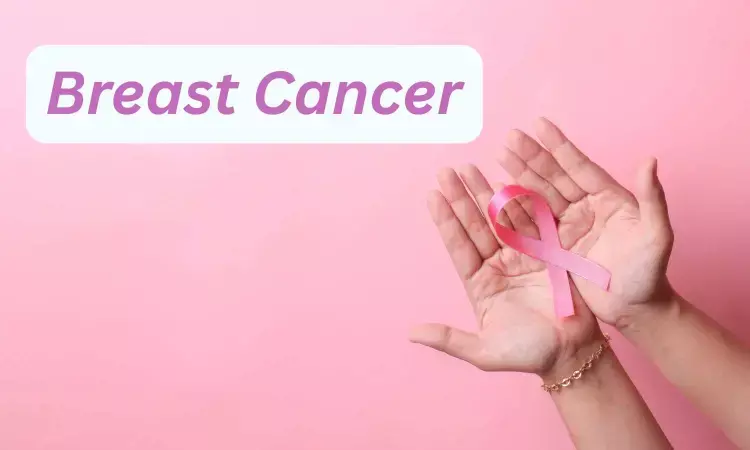- Home
- Medical news & Guidelines
- Anesthesiology
- Cardiology and CTVS
- Critical Care
- Dentistry
- Dermatology
- Diabetes and Endocrinology
- ENT
- Gastroenterology
- Medicine
- Nephrology
- Neurology
- Obstretics-Gynaecology
- Oncology
- Ophthalmology
- Orthopaedics
- Pediatrics-Neonatology
- Psychiatry
- Pulmonology
- Radiology
- Surgery
- Urology
- Laboratory Medicine
- Diet
- Nursing
- Paramedical
- Physiotherapy
- Health news
- Fact Check
- Bone Health Fact Check
- Brain Health Fact Check
- Cancer Related Fact Check
- Child Care Fact Check
- Dental and oral health fact check
- Diabetes and metabolic health fact check
- Diet and Nutrition Fact Check
- Eye and ENT Care Fact Check
- Fitness fact check
- Gut health fact check
- Heart health fact check
- Kidney health fact check
- Medical education fact check
- Men's health fact check
- Respiratory fact check
- Skin and hair care fact check
- Vaccine and Immunization fact check
- Women's health fact check
- AYUSH
- State News
- Andaman and Nicobar Islands
- Andhra Pradesh
- Arunachal Pradesh
- Assam
- Bihar
- Chandigarh
- Chattisgarh
- Dadra and Nagar Haveli
- Daman and Diu
- Delhi
- Goa
- Gujarat
- Haryana
- Himachal Pradesh
- Jammu & Kashmir
- Jharkhand
- Karnataka
- Kerala
- Ladakh
- Lakshadweep
- Madhya Pradesh
- Maharashtra
- Manipur
- Meghalaya
- Mizoram
- Nagaland
- Odisha
- Puducherry
- Punjab
- Rajasthan
- Sikkim
- Tamil Nadu
- Telangana
- Tripura
- Uttar Pradesh
- Uttrakhand
- West Bengal
- Medical Education
- Industry
Self-Hypnosis Reduces Menopausal Hot Flashes, Especially in Breast Cancer Survivors: JAMA

Breast Cancer
A new randomized clinical trial published in JAMA Network Open by Elkins et al. has found that self-administered clinical hypnosis substantially reduces the frequency and severity of menopausal hot flashes, providing meaningful relief and improvement in daily life quality compared with a sham control. Participants who practiced hypnosis experienced lower hot flash interference scores, greater perceived benefit, and overall improved sleep and emotional well-being. The technique, which involves guided relaxation and focused attention, was delivered through structured sessions that participants could self-administer, making it a practical and non-pharmacologic option for symptom management.
The benefits were particularly pronounced among women with a history of breast cancer—a group that often faces limited treatment choices due to contraindications for hormone therapy. Hypnosis provided an effective, drug-free intervention without the risks associated with hormonal or pharmacologic agents. The study reinforces the role of mind-body therapies in addressing vasomotor symptoms and enhancing overall quality of life during menopause. Importantly, women in the hypnosis group reported high satisfaction and strong adherence, underscoring its acceptability and potential for integration into clinical care settings.
These findings add to growing evidence that behavioral and psychological therapies can play a significant role in managing menopause-related symptoms. The use of self-hypnosis empowers women to take an active role in symptom control, offering a sustainable and accessible tool that complements existing non-hormonal therapies. The authors recommend that future research explore long-term outcomes, optimal session frequency, and implementation in diverse populations. For clinicians, hypnosis may represent an evidence-based addition to individualized care plans—especially for breast cancer survivors seeking safe, effective alternatives to hormone replacement therapy.
Reference:
Elkins, G. R., Fisher, W. I., Carpenter, J. S., Keith, T. Z., Hsieh, C., & Patel, P. (2025). Effects of self-administered clinical hypnosis on hot flashes in women with and without a history of breast cancer: A randomized clinical trial. *JAMA Network Open, 8*(11), e2841242. [https://doi.org/10.1001/jamanetworkopen.2025.41242](https://doi.org/10.1001/jamanetworkopen.2025.41242)
Dr. Shravani Dali has completed her BDS from Pravara institute of medical sciences, loni. Following which she extensively worked in the healthcare sector for 2+ years. She has been actively involved in writing blogs in field of health and wellness. Currently she is pursuing her Masters of public health-health administration from Tata institute of social sciences. She can be contacted at editorial@medicaldialogues.in.


